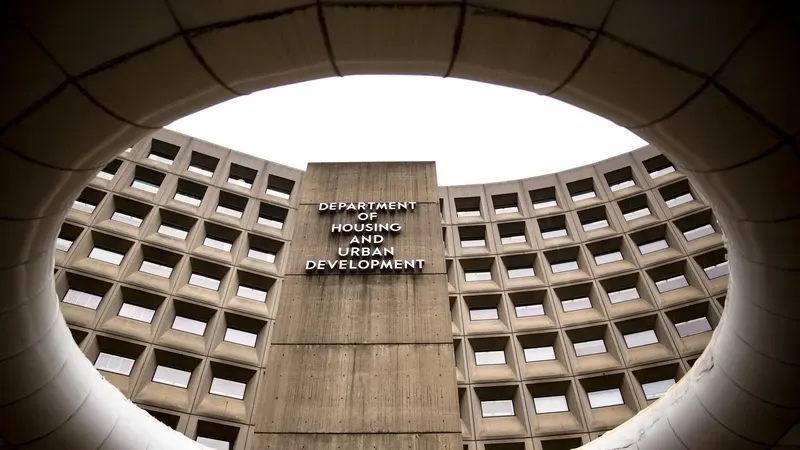Is DOGE a Heist? Real Federal Auditors Are Horrified by Its Actions!

Elon Musk’s Department of Government Efficiency (DOGE) has been making waves in Washington. Since its formation under the new Trump administration, it has been busy auditing federal agencies, claiming to root out fraud, waste, and inefficiency. However, what many expected to be a thorough audit seems more like a chaotic mission with little regard for standard auditing practices.
The Rise of DOGE
In his presidential campaign, Donald Trump promised a government efficiency task force, which Musk would lead, to conduct a complete financial and performance audit of the entire federal government. Musk set ambitious goals, initially claiming he would cut $2 trillion from the federal budget. He later scaled this back to $1 trillion but still insisted that waste, fraud, and abuse were to blame for this overspending.
Despite the huge claims, experts in the field of auditing are questioning whether DOGE’s actions are truly auditing the government or if they’re simply disrupting systems without any clear purpose.

What Real Audits Look Like
A real audit follows a strict set of guidelines, known as Generally Accepted Government Auditing Standards (GAGAS), often referred to as a Yellow Book audit. According to federal auditors who spoke to WIRED, the current actions of DOGE fall far from these standards.
The process of an actual audit includes five main phases: planning, evidence gathering, evaluation, reporting, and follow-up. Auditors carefully plan, gather evidence, conduct interviews, and analyze data to determine if there is fraud, waste, or abuse within a system. They then issue a report with findings and recommendations, often followed by a public disclosure.
This thorough process is designed to ensure that audits are comprehensive and accurate. However, according to the auditors speaking to WIRED, it approach doesn’t follow these steps and is far from a proper audit.

Is DOGE Really Auditing?
The auditors claim that DOGE is skipping the careful planning and investigation that real audits require. They suggest that the team behind DOGE lacks experience and knowledge of government auditing standards. For example, Musk’s claims about 150-year-olds receiving Social Security benefits were based on faulty data analysis, a result of DOGE’s rushed methods.
“An audit takes months, even years, depending on the complexity of the system,” one auditor explained. “What DOGE is doing isn’t an audit at all. It’s a heist.”
Problems with DOGE’s Approach
DOGE’s rush to make changes and implement “efficiency” measures is causing serious concerns among federal workers. Thousands of contracts, including critical ones for humanitarian aid, have been canceled. However, many of these cancellations won’t save the government money—in fact, they may end up costing more in the long run.
One of the key issues is that canceling contracts, especially bulk purchases, often leads to additional fees and higher costs. This is the case for many software licenses DOGE has targeted. What was intended to be an efficiency measure may, in fact, waste more taxpayer money.

Concerns About Data Access and Security
Another serious concern is how DOGE has been accessing sensitive government data. Federal workers worry that the team, made up mostly of young, inexperienced individuals, may be using this data for political purposes, or worse, violating privacy protocols.
Moreover, there have been reports of DOGE bypassing normal security clearance processes, with some team members having limited government experience and questionable backgrounds. One team member, Edward Coristine, who goes by “Big Balls” online, is a 19-year-old high school graduate, yet he was given high-level access to agencies like the General Services Administration and the Treasury.
A Different Approach to Government Efficiency?
While some of DOGE’s goals, such as eliminating inefficiency, are valid, their methods leave much to be desired. Real auditing practices could have been a better way to streamline operations and cut waste. Federal auditors suggest that if DOGE truly wanted to make a difference, they could begin by looking into existing recommendations from the Inspector General’s office, which already has thousands of unimplemented suggestions for improving efficiency.

Conclusion: A Missed Opportunity for Real Change
As DOGE continues its operation across the federal government, experts are calling out its lack of expertise and care. It’s clear that their approach is not the way a true government audit should work. Instead of improving efficiency, DOGE’s methods may be causing more harm than good. For any real progress to be made, Musk and his team may need to rethink their strategy and follow the established processes for government auditing.
Until then, the rush for “efficiency” will likely continue to cause disruption without delivering meaningful results. The question remains: Is DOGE a genuine effort to improve the government, or is it just a costly and chaotic exercise in power?






